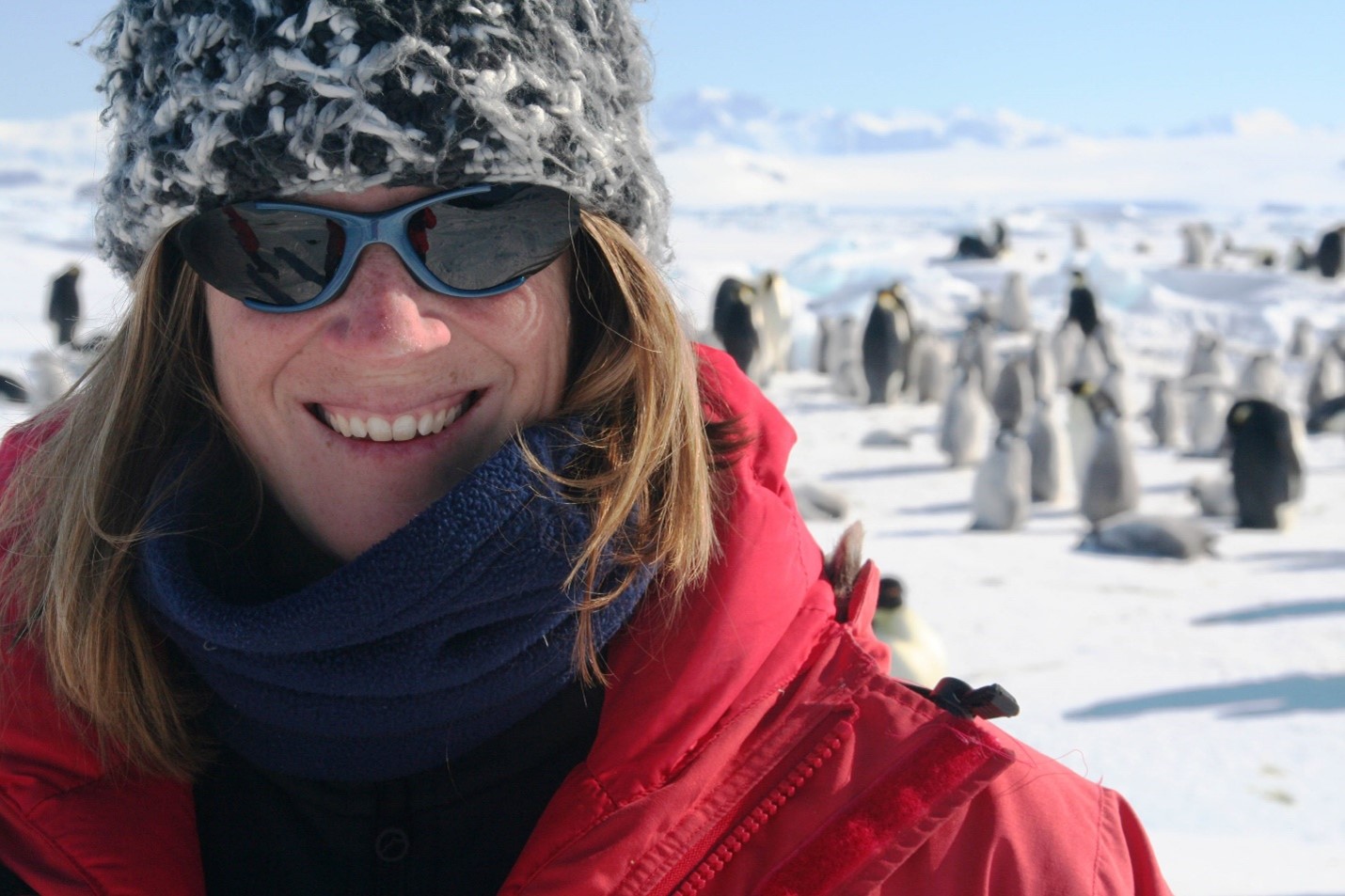Dr. Birgitte (Gitte) I. McDonald | Moss Landing Marine Laboratories
Presenting: "Emperors of the Ice: Physiological Ecology of the emperor penguin"
Hosted by the MLML Vertebrate Ecology Lab
MLML Seminar | September 24th, 2024 at 4pm (PDT)

Emperors of the Ice: Physiological Ecology of the emperor penguin
Emperor penguins are the largest species of marine bird, and perhaps because of their size, they are able to fast longer, dive deeper, and endure harsher conditions than any other avian species. As a top predator in the Antarctic ecosystem, they have a significant top-down effect on prey. Additionally, as top predators, their survival and reproduction depend on the functioning of the entire food web.
Join Gitte McDonald as she talks about her research expeditions to the Ross Sea to study the ecology and physiology of emperor penguins. She will start off with an introduction to the basic biology and ecology of emperor penguins before talking about current research on the behavioral and physiological adaptations that allow them to thrive in the Antarctic ecosystem. The talk will conclude with a discussion of current and future challenges. The talk will be heavy on pictures and light on data.
Birgitte (Gitte) I. McDonald
Associate Professor, Moss Landing Marine Laboratories
As a physiological and behavioral ecologist, Dr. Gitte McDonald investigates adaptations that allow animals to survive in extreme environments. Marine mammals and birds provide an ideal study system to investigate how animals deal with extreme conditions because of their large size variation, geographic distribution, and physiological challenges they face daily, including hypoxia, extreme temperatures, and fasting. Understanding the mechanisms that allow an organism to interact and survive in its environment is crucial for predicting and potentially mitigating their response to climate change. Currently, her research program focuses on two broad areas of research: 1) determining the diving capacity of breath-hold divers and understanding the underlying mechanisms, and 2) determining the energetic requirements of foraging and reproduction to better understand energy allocation, physiological trade-offs, and the organism’s role in the ecosystem. To address these questions, she uses state-of-the-art biologgers that measure fine-scale diving behavior and physiological variables (heart rate and oxygen), in addition to providing information about the environment. Her research has provided opportunities to work with a broad range of species in diverse habitats from the Antarctic to the Galapagos.

